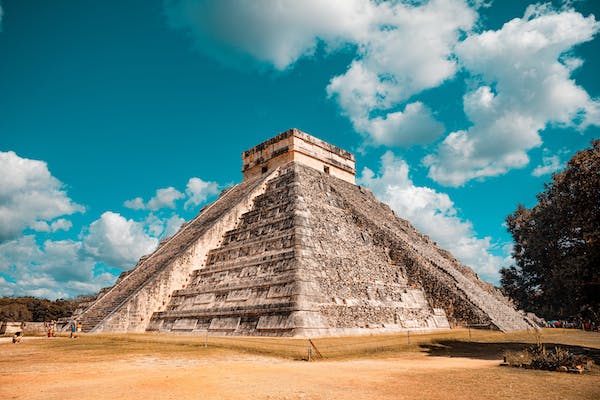Mexico, with its vibrant culture, stunning landscapes, and delicious cuisine, has long been a top destination for travelers from around the world. Whether you’re planning to explore the ancient Mayan ruins of Chichen Itza, relax on the pristine beaches of Cancun, or savor the flavors of authentic Mexican street food, there’s no shortage of exciting experiences awaiting you in Mexico. However, before you embark on your journey to this enchanting country, it’s crucial to ensure you meet all the entry requirements to make your visit smooth and hassle-free.
Mexico’s entry requirements can vary depending on your nationality, the purpose of your visit, and the length of your stay. In this comprehensive guide, we’ll walk you through the essential entry requirements you need to meet when traveling to Mexico, including visa information, passport validity, and more. By the time you finish reading, you’ll be well-prepared to enjoy your Mexican adventure to the fullest.
1. Passport Validity and Visa Requirements
Passport Validity:
One of the most fundamental entry requirements for traveling to Mexico is having a valid passport. Your passport must be valid for at least six months beyond your intended departure date from Mexico. This means that if you plan to stay in Mexico for a week, your passport should be valid for at least six months after that week. It’s essential to check your passport’s expiration date well in advance of your trip and renew it if necessary to avoid any last-minute complications.
Visa Requirements:
Mexico operates on a visa-exemption system for many nationalities, allowing travelers to enter the country for tourism or business purposes without obtaining a visa beforehand. However, the specific visa requirements for Mexico can vary depending on your nationality and the duration of your stay. Here are some key points to consider:
a. Tourist Visas (FMM – Forma Migratoria Múltiple):
If you are a citizen of the United States, Canada, the European Union, or many other countries, you can typically enter Mexico as a tourist without a visa. Instead, you will need to fill out a Forma Migratoria Múltiple (FMM), also known as a tourist card. You can obtain an FMM at the point of entry, such as an airport or border crossing. It’s a simple form that requires basic information about your trip, and it is usually provided free of charge for stays of up to 180 days.
b. Business Visas:
If you plan to conduct business activities in Mexico, such as meetings, negotiations, or conferences, you may need a business visa. The requirements for a business visa can vary, and it’s advisable to contact the nearest Mexican consulate or embassy in your home country for specific information. Business travelers should clarify the purpose of their visit when applying for a visa to ensure they receive the appropriate category.
c. Work Visas:
If you intend to work in Mexico, you will need a work visa. These visas are typically sponsored by a Mexican employer, and the application process can be complex. It’s essential to coordinate with your prospective employer and the Mexican embassy or consulate to navigate the work visa application successfully.
d. Temporary Resident Visas:
For those planning to stay in Mexico for longer periods, such as retirees or individuals seeking temporary residency for other reasons, there are temporary resident visas available. These visas require proof of financial solvency and may have additional documentation requirements. The application process can be extensive, so be sure to start early and consult the Mexican consulate or embassy for guidance.
2. Visitor Permit (FMM – Forma Migratoria Múltiple)
As mentioned earlier, most tourists entering Mexico will need to obtain a Forma Migratoria Múltiple (FMM), also known as a tourist card. This permit allows you to stay in Mexico for up to 180 days for tourism or recreational purposes. To obtain an FMM, you can:
- Request it at the point of entry (airport, land border, or seaport).
- Fill out the FMM form, which is usually provided during your flight or at the border.
- Pay the applicable fee, which is often included in the price of your airline ticket or as part of your tour package.
Ensure you keep a copy of your FMM and your passport with you at all times during your stay in Mexico, as immigration authorities may request them for verification. Losing your FMM can result in fines and complications when leaving the country.
3. Duration of Stay
Mexico has specific rules regarding the duration of stay for tourists. As mentioned previously, tourists are generally allowed to stay for up to 180 days with an FMM. It’s crucial to adhere to this limit, as overstaying your permitted duration can result in fines, deportation, or even future travel restrictions to Mexico. If you wish to extend your stay beyond 180 days, you should contact the Instituto Nacional de Migración (National Institute of Immigration) in Mexico for guidance on the extension process.
4. Mexican Tourist Card (Tourist Tax)
In addition to the FMM, some travelers may be required to pay a Mexican tourist card or tourist tax upon arrival. This fee, known as the Visitax, is applicable to tourists arriving by air and is typically included in the price of your airline ticket. However, if you are entering Mexico by land or sea, you may need to pay the Visitax separately. Be sure to check the latest regulations and fees before your trip to ensure compliance.
5. Traveling with Minors
If you are traveling to Mexico with children under the age of 18 who are not accompanied by both parents or legal guardians, there are specific requirements you must meet. To prevent child trafficking and abduction, Mexican authorities have implemented strict regulations:
- Children traveling with only one parent must have a notarized letter of consent from the absent parent or legal guardian.
- If a child is traveling with neither parent, a notarized letter of consent from both parents or legal guardians is typically required.
- In cases where a child is traveling with a legal guardian, the guardian should carry proof of legal guardianship.
It’s essential to check with the Mexican embassy or consulate in your home country for the most up-to-date and detailed information on these requirements.
6. Health and Vaccination Requirements
While Mexico does not typically require specific vaccinations for entry, it’s advisable to ensure that your routine vaccinations are up to date before traveling. Additionally, depending on your travel plans within Mexico, you may want to consider vaccinations for diseases such as Hepatitis A, Hepatitis B, and Typhoid, especially if you’ll be visiting rural areas or consuming street food.
Furthermore, as of my knowledge cutoff date in September 2021, Mexico had implemented specific health and safety measures due to the COVID-19 pandemic. Travelers were required to complete health questionnaires and may have been subject to health screenings upon arrival. It’s crucial to check the latest COVID-19 travel advisories and requirements from both your home country and Mexican authorities before your trip, as these requirements can change frequently.
7. Customs Regulations
When traveling to Mexico, you should be aware of the customs regulations and restrictions regarding items you can bring into the country. Mexico has strict rules on importing and exporting certain goods, including alcohol, tobacco products, firearms, and more. Exceed
ing these limits or attempting to import prohibited items can lead to confiscation, fines, or legal consequences. To avoid any issues, familiarize yourself with Mexico’s customs regulations and declare all items as required when entering and leaving the country.
8. Safety and Security
Before traveling to Mexico, it’s essential to research the safety situation in your intended destination. While Mexico offers incredible travel experiences, some areas may have safety concerns, such as high crime rates or travel advisories. The U.S. Department of State and other foreign ministries typically provide up-to-date travel advisories and safety information for various regions in Mexico.
Travelers are advised to stay informed about local conditions, follow local authorities’ guidance, and take precautions such as safeguarding personal belongings, avoiding risky areas, and using reliable transportation services. Travel insurance that includes coverage for medical emergencies and trip cancellations can provide added peace of mind during your trip.
9. Currency and Money Matters
Mexico’s currency is the Mexican Peso (MXN). It’s advisable to exchange some currency before your trip to cover immediate expenses upon arrival. Additionally, ATMs are widely available throughout the country, allowing you to withdraw pesos as needed. Major credit and debit cards are accepted at most hotels, restaurants, and stores in tourist areas, but it’s a good idea to carry some cash for small purchases and in case you visit places where cards are not accepted.
10. Conclusion
Traveling to Mexico is a rewarding experience filled with rich culture, breathtaking landscapes, and warm hospitality. To ensure your trip is stress-free and enjoyable, it’s essential to meet all entry requirements, including having a valid passport, obtaining the necessary visas or permits, and adhering to the rules and regulations outlined in this guide. Additionally, staying informed about local conditions, practicing safety precautions, and respecting customs regulations will contribute to a smooth and memorable visit to Mexico.
Remember that entry requirements and regulations can change, so it’s crucial to verify the latest information with the Mexican embassy or consulate in your home country and stay updated on any travel advisories or changes in Mexican immigration policies. With proper preparation and awareness, you’ll be well-equipped to make the most of your Mexican adventure and create lasting memories in this beautiful and diverse country. Enjoy your travels in Mexico!
















